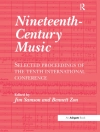In Tropical Riffs Jason Borge traces how jazz helped forge modern identities and national imaginaries in Latin America during the mid-twentieth century. Across Latin America jazz functioned as a conduit through which debates about race, sexuality, nation, technology, and modernity raged in newspapers, magazines, literature, and film. For Latin American audiences, critics, and intellectuals-who often understood jazz to stem from social conditions similar to their own-the profound penetration into the fabric of everyday life of musicians like Duke Ellington, Dizzy Gillespie, and Charlie Parker represented the promises of modernity while simultaneously posing a threat to local and national identities. Brazilian antijazz rhetoric branded jazz as a problematic challenge to samba and emblematic of Americanization. In Argentina jazz catalyzed discussions about musical authenticity, race, and national culture, especially in relation to tango. And in Cuba, the widespread popularity of Chano Pozo and Damaso Perez Prado popularity challenged the United States’ monopoly on jazz. Outlining these hemispheric flows of ideas, bodies, and music, Borge elucidates how "America’s art form" was, and remains, a transnational project and a collective idea.
Jason Borge
Tropical Riffs [PDF ebook]
Latin America and the Politics of Jazz
Tropical Riffs [PDF ebook]
Latin America and the Politics of Jazz
Mua cuốn sách điện tử này và nhận thêm 1 cuốn MIỄN PHÍ!
Ngôn ngữ Anh ● định dạng PDF ● ISBN 9780822372332 ● Nhà xuất bản Duke University Press ● Được phát hành 2018 ● Có thể tải xuống 3 lần ● Tiền tệ EUR ● TÔI 6791097 ● Sao chép bảo vệ Adobe DRM
Yêu cầu trình đọc ebook có khả năng DRM












